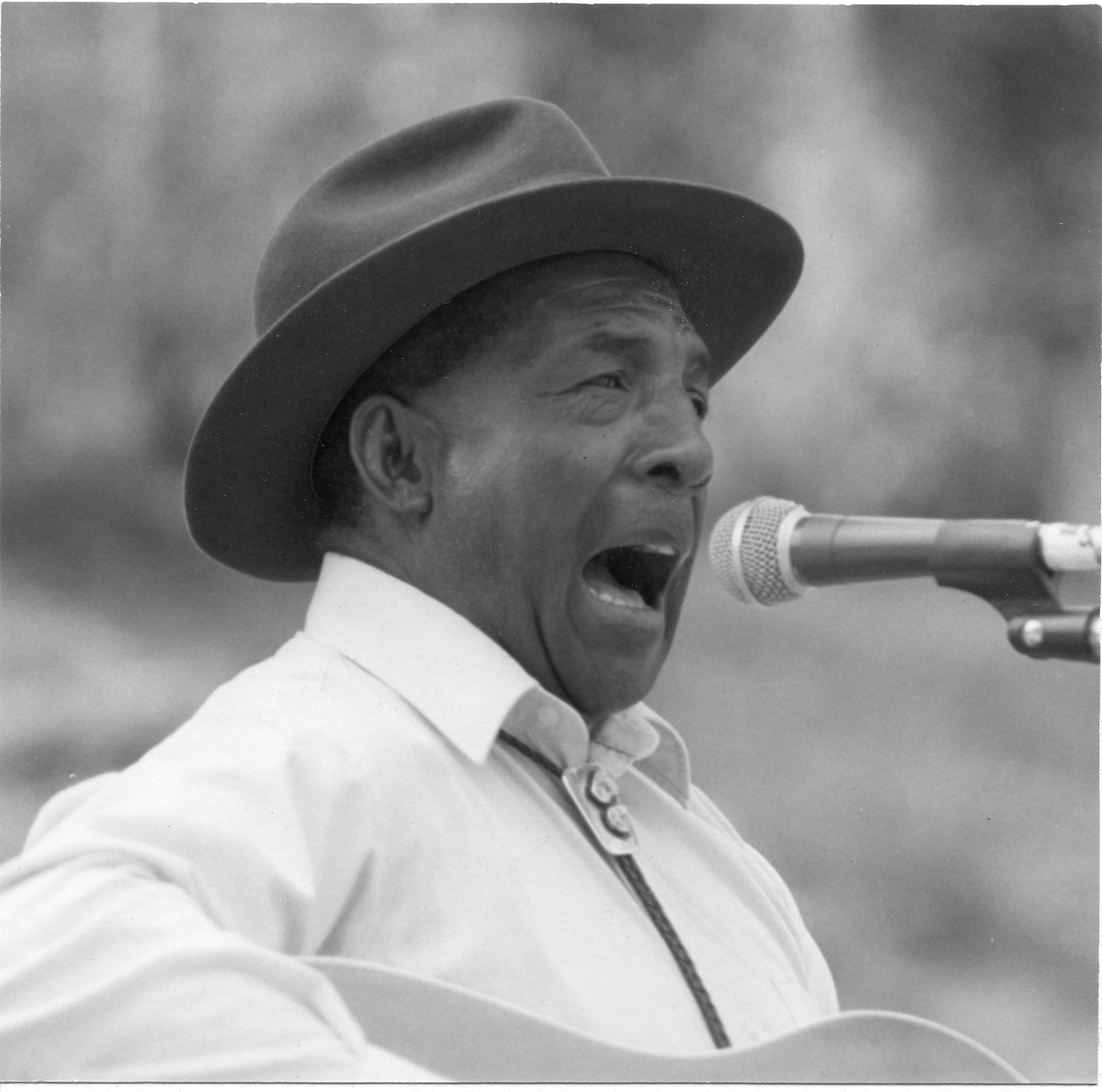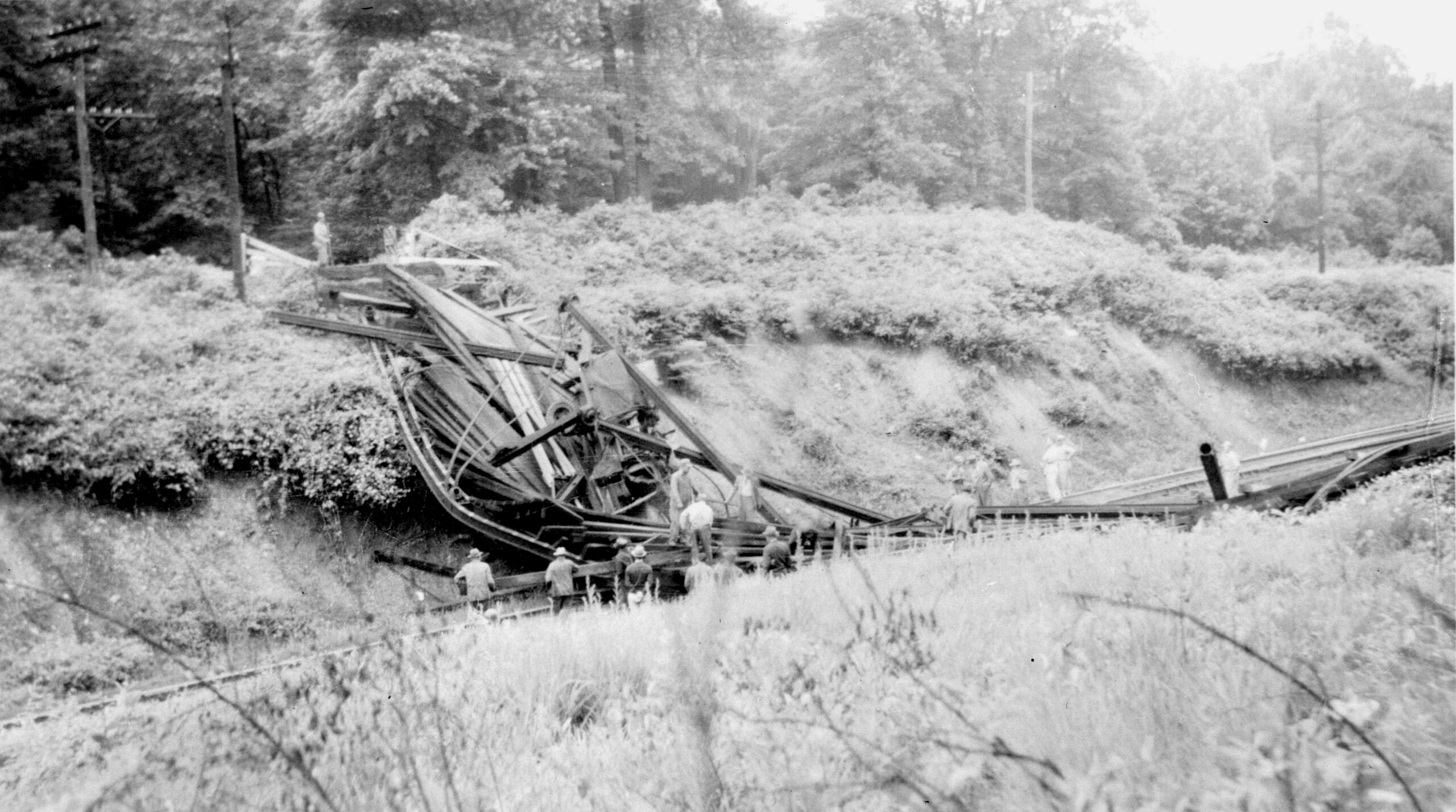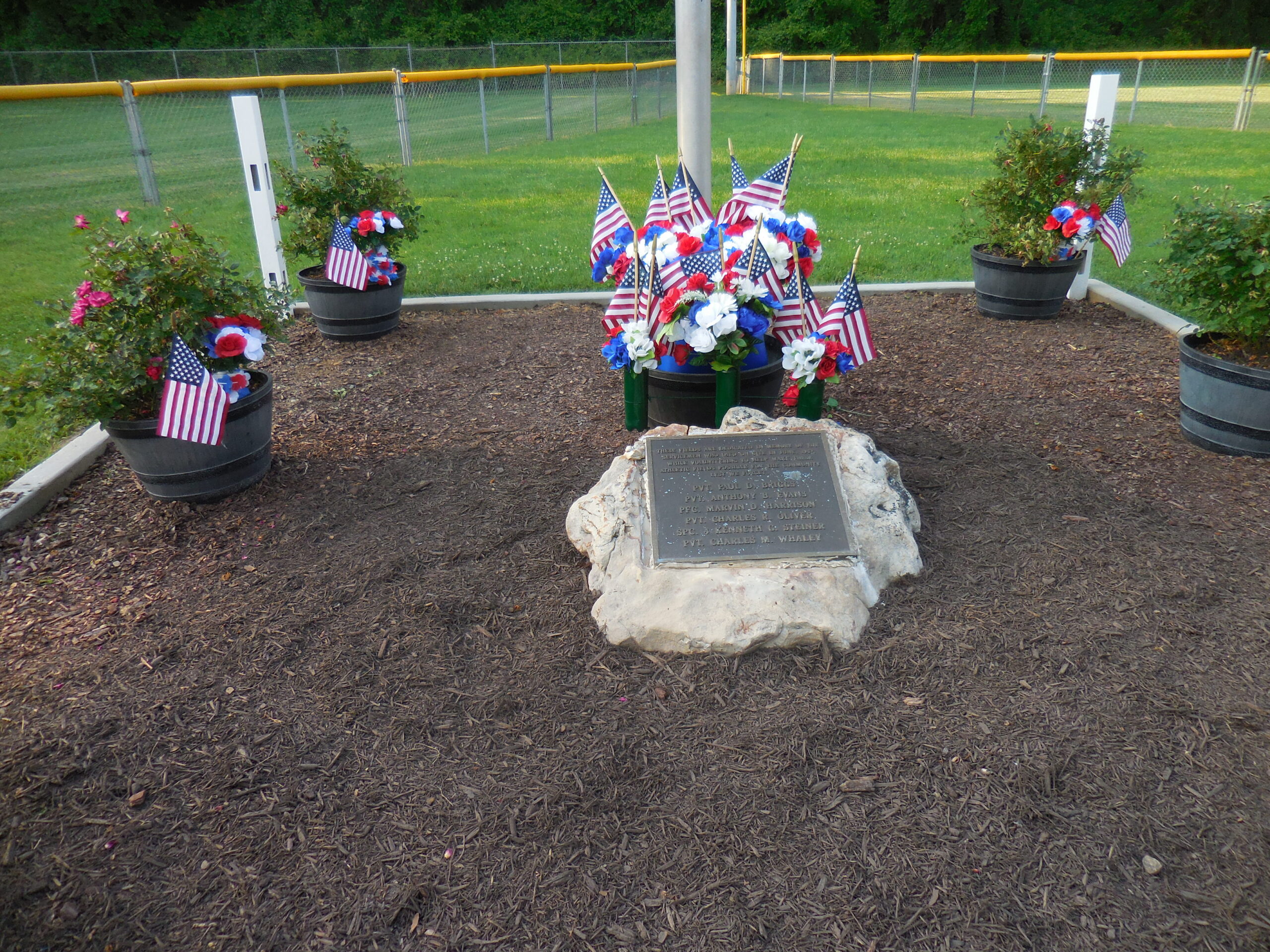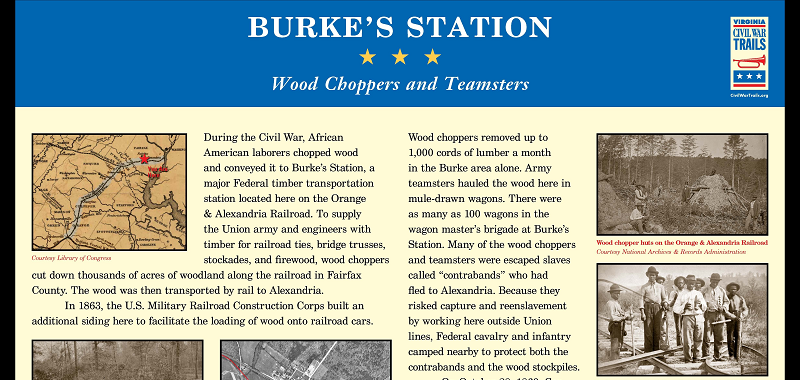By Mary Lipsey and Debi DeLoose. In the late 1800’s an iron truss bridge was…

Burke’s Bluesman
It’s a good time to revisit the theme of “notable people from the Burke area.” On this occasion, we’ll look at one of our most renowned musicians.
John Jackson was born February 25, 1924, in Woodville, Rappahannock County, Virginia, to tenant farmers Suddy and Hattie Jackson. (Sources vary as to a middle name, but his vital records indicate that he had none.) With his thirteen siblings, he grew up in the foothills of the Blue Ridge, helping his parents with the constant variety of tasks to be done on the farm.
Nonetheless, the work was not all-consuming, nor was life in the rural community uneventful. Jackson’s family moved locally twice by the time he was five years old. On May 2nd, 1929, two tornadoes from the massive Rye Cove outbreak along southern Appalachia struck Rappahannock County, the first destroying several buildings in Woodville. And on a day-to-day basis, there was always music.
As Jackson recalled, “Everybody in the family played music—my mother, my father, aunts, uncles, my brothers and sisters. My father played…guitar, banjo, the mandolin, the ukulele…and these little pennywhistles…. …My mother blowed the harmonica and played the accordion, and, of course, she never sang no blues. She was mostly a spiritual singer. …So what we did on the weekend and before bedtime at night, everybody sat around and sang songs.”
Jackson’s father traveled regionally to play music at house parties and square dances, but young Johnnie was unable to learn guitar directly from his left-handed father. So, he began teaching himself, observing other guitarists at musical gatherings and following their example with a discerning ear. It was a chance encounter, however, that gave him a true foundation in technique.
At the beginning of the 1930s, U.S. Highway 29 was extended north from Lynchburg to Culpeper, using a large convict workforce. One of the convicts, known to Jackson only by his nickname Happy, would regularly visit the family’s farm to draw water from the spring. The Jacksons began inviting him to dinner, where Happy would return the kindness by playing for the family on the father’s guitar—with a skill that astounded Suddy Jackson and fascinated young John. It was Happy who gave John his first formal lessons.
After that, Jackson was hooked. When the family bought a record player and began building a collection of several hundred blues, gospel, and country records, Jackson would teach himself to play each tune and commit it to memory. As he matured, he followed his father onto the local circuit of house parties and picnics, married Cora Lee Carter in 1944, and began raising a family.
Then, everything changed. In 1946, after an especially violent fight broke out at a party where Jackson was playing, he resolved to quit performing for good. Three years later, he and his family decided to pull up stakes and move to Fairfax County, where Jackson worked on a dairy farm and then as a gravedigger, among other jobs.
So, how did Jackson become a “renowned musician” when he had given up playing in public? Again, by chance encounters. In 1964, eighteen years after his retirement as a performer, Jackson was picking at home and overheard by the local mailman, an aspiring guitarist. The postman persuaded Jackson to give him a lesson at a local gas station where he worked his second job. As the lesson began, fate smiled again. Folklorist Chuck Perdue pulled in to tank up, came across Jackson’s playing, and realized he had just met one of the great traditional musicians of his time.
From there, Jackson’s ascent was both quick and enduring. In an even broader sense than his encounter with Chuck Perdue, he was in the right place at right time: during the folk revival of the 1960s, greater Washington was a hotspot of traditional music, and especially acoustic blues. This status was the result of several factors: the proximity of homegrown Piedmont bluesmen like Jackson; the avid work of private groups like the Folklore Society of Greater Washington; the presence of federal cultural agencies like the Library of Congress; and the efforts by enthusiasts to locate other long-retired bluesmen like Skip James and Mississippi John Hurt, who were persuaded to move to the national capital and resume playing.
Jackson soon became a key component of the traditional music scene, both regionally and far beyond. Around Washington, he performed at coffee shops and schools, at special events like Falls Church’s Tinner Hill Blues Festival and the Smithsonian Folklife Festival, and on the South Lawn of the White House. He recorded several albums, appeared across the country at events like the Newport Folk Festival, and toured internationally via the U.S. State Department’s cultural diplomacy programs. His album on the Smithsonian Folkways label described him as “the most important black Appalachian musician to come to broad public attention during the mid-1960s,” and in 1986, the National Endowment for the Arts awarded him with a National Heritage Fellowship
Stepping back a little, I gave this article the title “Burke’s Bluesman” because it’s succinct and catchy. To be more precise, though, both terms require a bit of clarification.
First, it was Fairfax Station that Jackson actually called home. However, he lived on Ox Road just outside of Burke, and in truth he was a part of both communities. In Fairfax Station, he worked as a gravedigger at Saint Mary of Sorrows Catholic Church and performed at the church’s annual Labor Day picnic. In Burke, Jackson contributed to the Burke Historical Society’s former museum from his collection of Civil-War artifacts (some found by chance during his day job, but many the result of his passion for metal-detecting) and performed at the Burke Historical Days and Burke Centre Festivals.
Second, while Jackson was proud to be known as a blues player, he identified even more with the title of “songster.” Historically, this term has designated musicians with large repertoires drawn from a wide variety of 19th– and 20th-century popular styles, including ballads, spirituals, rags, blues, and country dance tunes. Considering the range of Jackson’s influences growing up and the versatility of his performances and recordings, the term is truly apt.
Jackson died at home on January 20, 2002, at the age of 77. In case you’re not already familiar with his music, several of his albums are still available: Country Blues & Ditties (Arhoolie), Don’t Let Your Deal Go Down (Arhoolie), Rappahannock Blues (Smithsonian Folkways), and Front Porch Blues (Alligator). And if you’d like to learn more about local blues history, you might enjoy a new book: Sweet Bitter Blues: Washington, DC’s Homemade Blues, by Phil Wiggins and Frank Matheis.


